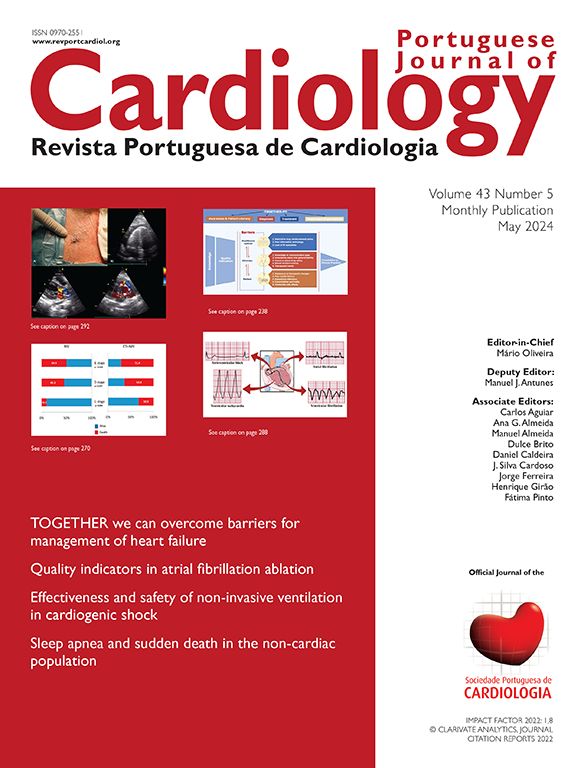Some time ago the Journal published an article by us entitled “Relationship between leptin and body mass and metabolic syndrome in an adult population” (Rev Port Cardiol 2012;31 11:711-719), which was the subject of a Letter to the Editor from investigators in Turkey.
We are pleased to note that some of the comments in this letter were in support of our article, which we appreciate, while others are somewhat critical.
These criticisms appear to apply to the title of our article, since we correlated body mass index (BMI) with leptin levels without taking into consideration the effect of smoking as a cardiovascular risk factor, which can affect serum leptin levels.
We used BMI as a means of quantifying obesity, which we proceeded to relate to the risk factors under analysis.
With regard to the title of the Letter to the Editor, we would like to make the following points.
Obesity, in particular changes in adipose tissue, has harmful effects in organs including the pancreas, liver, muscle and especially the heart. Insulin resistance (IR) is the main mechanism behind these effects, resulting in other disorders including dyslipidemia, hyperinsulinemia and impaired glucose tolerance (as we observed in our study population and attempted to explain), leading inexorably to atherosclerosis (and hence cardiovascular disease) and type 2 diabetes.1
As stated in the Results and Discussion sections of our article, higher serum leptin levels are associated with significantly increased IR and serum insulin (and in fact with all the risk factors we analyzed). We thus gave an objective answer to the question in the title of the Letter to the Editor: high leptin levels, a sign of obesity, are a cause and not an indicator of cardiovascular risk (our article, p. 717). This finding of an association between leptin levels and cardiovascular risk was confirmed by demonstration of close correlations between leptin and IR and leptin and serum insulin, and by ROC curve analysis predicting IR and high leptin.
We did not analyze smoking in our study population. The findings of the studies in references 4 and 5 to the letter, of which we were aware, are interesting, but are beyond the scope of our article.
However, we agree with our correspondents in Turkey that much more research is needed to investigate important aspects of this subject, some of which we mentioned in the Introduction to our article, but also the relationship between leptin and inflammatory markers (including C-reactive protein, tumor necrosis factor alpha and interleukin-6), leptin and abdominal obesity, among others.



